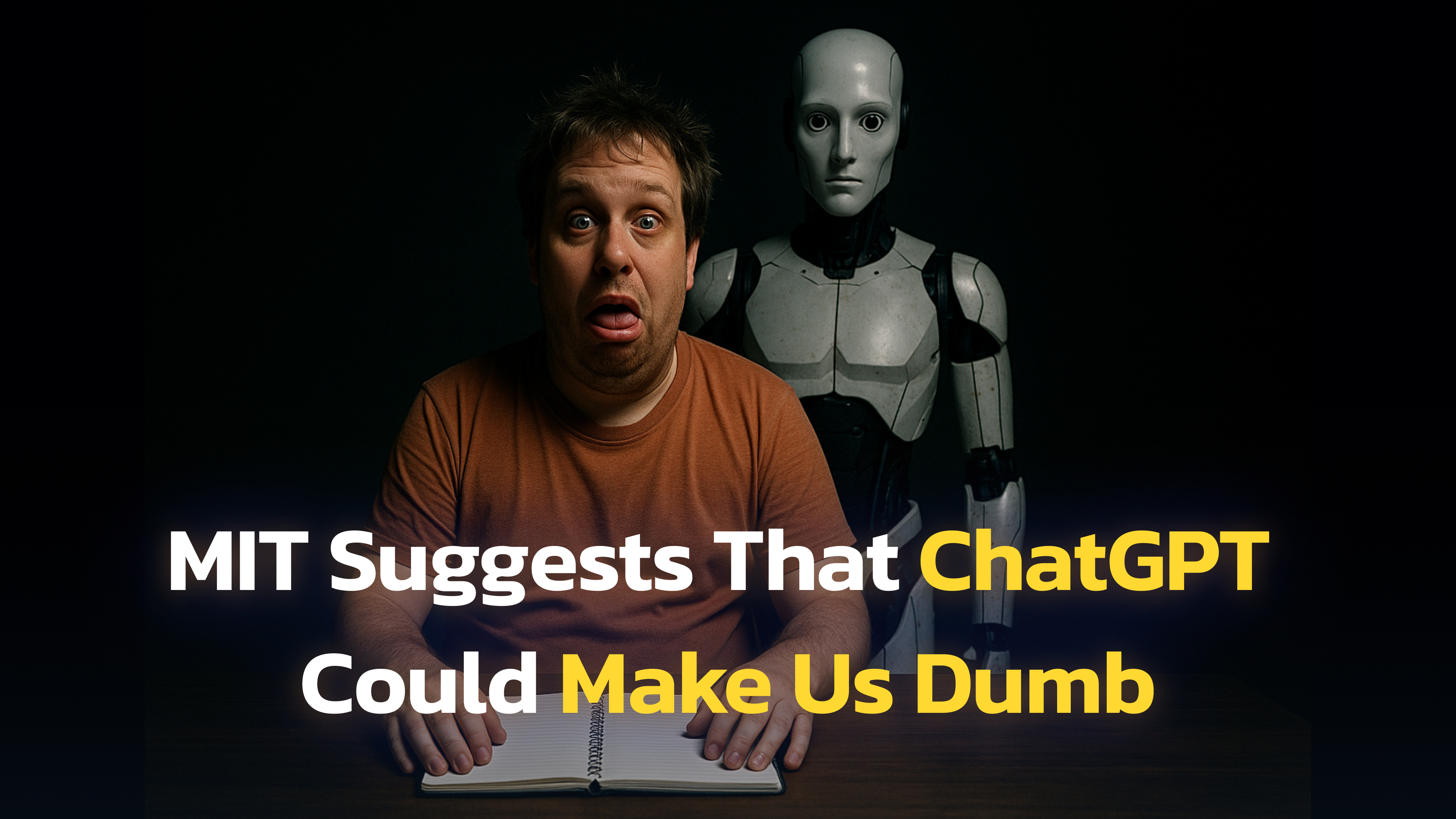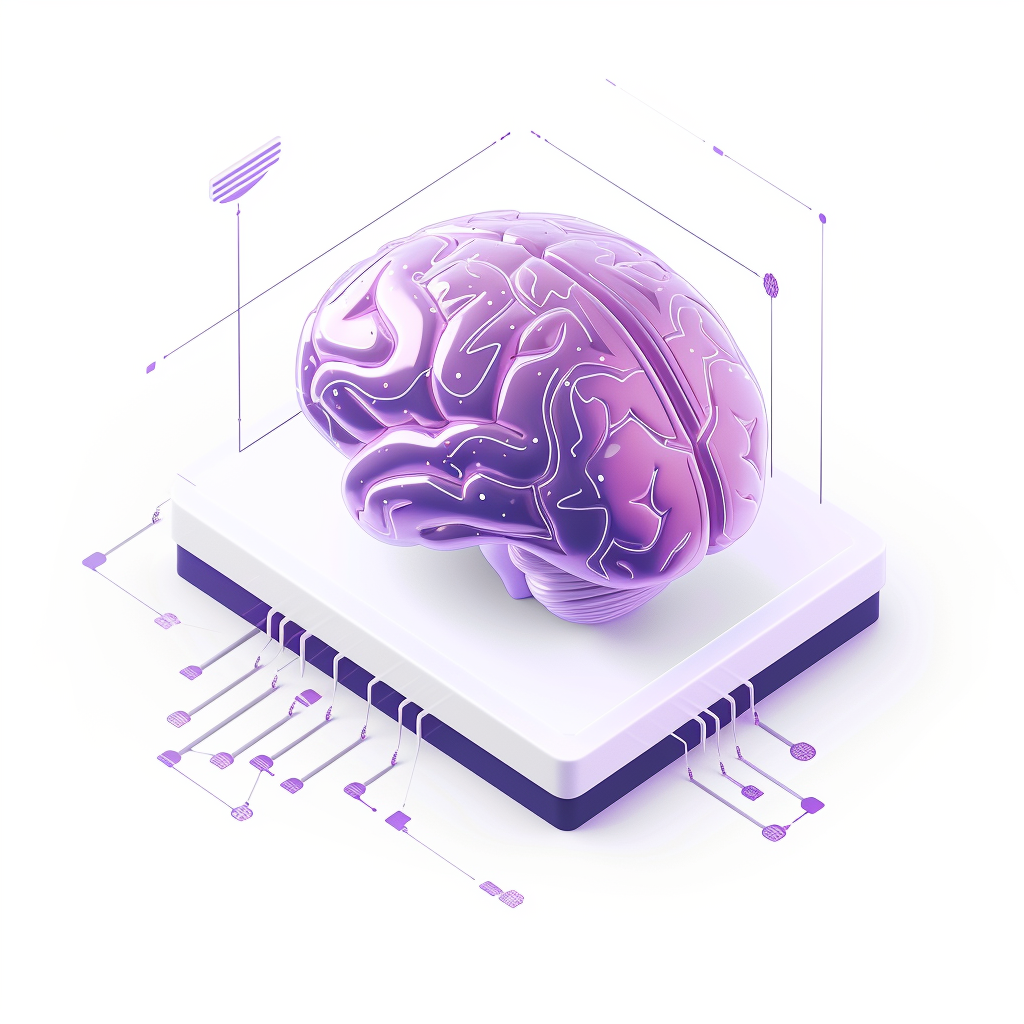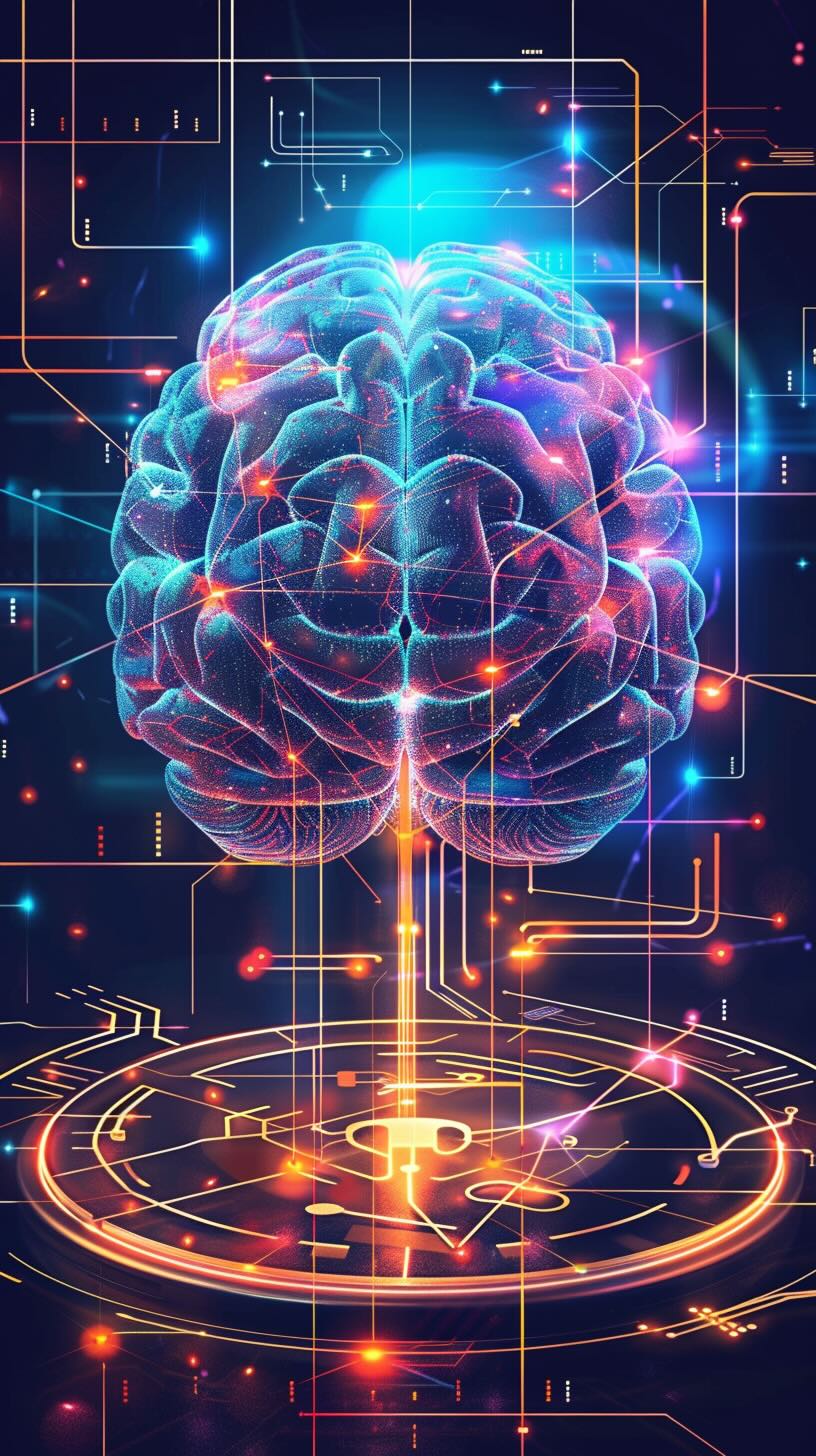In June 2025, researchers from the MIT Media Lab published a study called Your Brain on ChatGPT. It looked into a growing concern: is using AI to write for us slowly making our brains less active?
The team focused on ChatGPT and how it affects memory, brain activity, and the feeling of ownership when we write. With more students and professionals turning to AI tools for writing, studying, and even thinking, it’s an important question: Are we learning with AI—or letting it think for us?
To find out, researchers recruited 54 students and recent grads (ages 18–39) from top U.S. universities like MIT, Harvard, Tufts, and Wellesley. They divided them into three groups:
- ChatGPT group: Wrote essays using ChatGPT-4o
- Search group: Used Google to find info but wrote on their own
- Brain-only group: Wrote without any tools at all
All three groups wrote SAT-style essays across three sessions. In a surprise fourth session, some switched roles: ChatGPT users had to write without help, while some from the brain-only group used ChatGPT for the first time. Throughout, participants wore EEG headsets to measure real-time brain activity.
Less Thinking When Using ChatGPT
The results were clear. The more help participants had from outside tools, the less their brains had to work.
The brain-only group showed the most active and connected brain patterns. The ChatGPT group, by contrast, showed the lowest brain activity—up to 55% lower, according to the EEG scans.
Even when ChatGPT users were later asked to write on their own, their brains stayed in “low gear.” The researchers called this effect cognitive debt—the idea that using AI makes your brain work less, and that reduced effort lingers even after the AI is gone.
“Brain connectivity systematically scaled down with the amount of external support,” the MIT team wrote in their summary.
Interestingly, when brain-only users switched to ChatGPT, their brain activity actually increased slightly—possibly because they were curious about using something new. But over time, the data suggests this boost fades as people get used to letting the AI take over.
Better Grammar, Worse Memory
Essays written with ChatGPT often looked polished—clean grammar, good structure, and high scores from AI-based graders. But human English teachers could tell something was missing.
“These essays felt soulless… many sentences were empty, and they lacked personal touch,” said the teachers in their review.
There was another big problem: memory. When asked to quote from their essays just a few minutes later, 83.3% of ChatGPT users couldn’t do it, compared to only 11.1% in the other groups. Many couldn’t even remember the main point of what they had just written.
This shows a common issue with AI tools called cognitive offloading—we let the machine think for us, so our brain doesn’t bother storing the information.
And while the essays may have looked good on the surface, they often sounded the same. ChatGPT tends to reuse common phrases and sentence patterns, especially when given basic prompts. Essays from the brain-only group, by contrast, were more original and used a wider range of vocabulary.
Should We Be Concerned?
The MIT study quickly gained attention from major media outlets like Time, The Register, and Futurism, sparking widespread debate about the role of AI in learning. The findings—that ChatGPT use may reduce brain activity and memory—are significant.
Some researchers and educators caution that we shouldn’t overreact based on a single study. There are several important limitations worth considering:
- Small sample size: Only 54 participants were included, all from a narrow age group (18–39) and similar academic backgrounds. This makes it hard to generalize the results to broader populations.
- Single-task focus: The study only examined SAT-style essay writing. It didn’t explore how AI affects other activities like programming, drawing, debating, or hands-on learning.
- Text-only interaction: All sessions involved typing with ChatGPT. The study didn’t examine how spoken or multimodal interactions—like talking to AI or using visuals—might impact brain engagement differently.
- Not peer-reviewed: The research was published as a preprint and hasn’t yet gone through academic peer review. Until it is independently validated, its conclusions should be considered preliminary.
Despite these limits, the core message is still worth paying attention to—especially for educators and parents. Younger users, in particular, may be more vulnerable to forming habits that reduce mental effort if they rely too heavily on AI.
What Should We Focus On Next?
This study doesn’t suggest we need to stop using ChatGPT. Instead, it’s a reminder to use AI carefully—not as a shortcut to avoid thinking, but as a tool to support and improve our own ideas.
The real risk comes when people rely on AI to do all the work. Over time, that can lead to weaker memory, lower focus, and less personal connection to what we create. AI should assist learning, not replace the mental effort that helps us grow.
Future research should look at how AI affects different age groups, especially children and teens. It’s also important to study other types of AI use—like coding, visual tools, or voice-based interactions—to understand their impact on the brain.
For now, the key takeaway is balance. AI can save time and help us work faster, but it shouldn’t take over our thinking. The goal is to stay engaged, stay curious, and make sure we’re still doing the hard part—learning.
Conclusion
The rise of AI tools like ChatGPT has made tasks like writing, researching, and brainstorming easier than ever—but that convenience comes with a deeper question: what happens when we stop needing to struggle?
Throughout history, every major technological leap—from calculators to spellcheck—has changed how we think and what we’re expected to remember. But the difference now is scale. With LLMs capable of generating full essays, solving problems, and even mimicking human conversation, we’re no longer just outsourcing small tasks—we’re outsourcing core parts of the thinking process.
This isn’t just about education. It’s about what kind of mental muscles we want to maintain in a world where we don’t have to use them. The real danger isn’t that ChatGPT makes us dumb—it’s that we stop noticing when we’re not thinking anymore.
So the question isn’t “Should we ban AI?” but “How do we stay sharp in a world where thinking is optional?” The answer, as always, starts with awareness. Use the tools—but don’t forget to use your mind.







